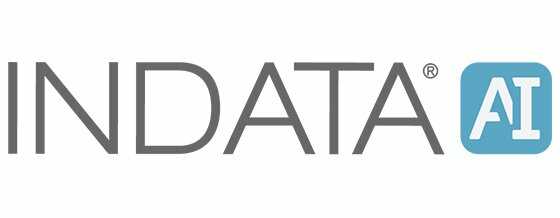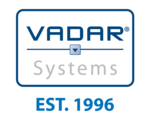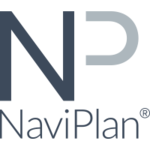What Is Investment Management Software?
Investment management software is a useful tool that helps investors make better financial decisions by managing and evaluating their investment portfolios. With the increasing complexity and volume of financial data, this software has become an invaluable asset in today's fast-paced and dynamic investing scene. At its core, investment management software serves as a comprehensive and unified dashboard for all of your financial data, offering a complete picture of your portfolio's performance.
It eliminates the need for manual tracking and spreadsheet administration, saving investors time and effort while lowering the risk of errors. This software also includes tools and capabilities to help investors make data-driven decisions, reduce risks, and maximize returns. One of the primary advantages of adopting investment management software is its capacity to combine data from many sources, such as bank accounts, brokerage accounts, retirement funds, and so on.
This not only provides a comprehensive summary of your financial situation, but it also allows you to detect any holes or redundancies in your investing strategy. Furthermore, this program frequently includes customisable reporting and visualization tools, which make it easier to analyze and interpret your investment results. Investment management software also includes extensive analytical features such as risk assessment, asset allocation, and benchmarking.
These capabilities enable consumers to precisely estimate their risk tolerance and adjust their investment strategy accordingly. Furthermore, the program frequently connects with real-time market data, keeping investors up to date and informed about their assets. Another important feature of investment management software is its capacity to simplify financial management activities.
This includes features like budgeting, cash flow management, and tax preparation, making it a one-stop shop for all of your financial requirements. By automating these procedures, investors may concentrate on strategic decision-making while saving time on mundane financial management tasks.
What Are The Recent Trends In Investment Management Software?
Since its origin, investment management software has advanced significantly, and it is still evolving to meet the changing needs of the finance industry. Buyers should be aware of some important trends in the area of investment management software during the last few years.
These trends have the potential to significantly alter the functionality and efficacy of investment management software, therefore it is critical for buyers to stay updated.
1. AI Integration: One of the most important trends in investment management software is the incorporation of AI technology. Artificial intelligence methods such as machine learning and natural language processing are being integrated into investment management software to improve data analysis, automate mundane processes, and detect patterns and trends. This enables more accurate decision-making and better portfolio management.
2. Cloud-Based Solutions: Cloud-based investment management software has grown in popularity in recent years due to its greater flexibility and cost-effectiveness compared to traditional on-premise software. With cloud-based solutions, investment businesses may access their data from anywhere, at any time, and take advantage of automatic upgrades and backups. This trend is projected to continue as more investors opt for remote employment and demand more flexible technology solutions.
3. Focus On Data Security: High-profile data breaches have highlighted the importance of data security in the financial industry, prompting a trend among investment management software companies to prioritize data protection. Buyers should search for software that includes advanced security features like encryption, multi-factor authentication, and frequent security updates to ensure their sensitive financial information is protected.
4. Integration Of Third-Party Applications: Many investment management software vendors now integrate with third-party programs to provide a more comprehensive solution. This enables investors to integrate their software with other tools they use, including as accounting software, CRM systems, and trading platforms, thereby reducing operations and increasing efficiency.
5. Emphasis On User Experience: In an industry that has historically been sluggish to adopt new technologies, there has been a recent shift toward user-friendly and easy-to-use investment management software. This tendency is fueled by a younger generation of investors who demand a smooth user experience. Buyers should search for software with a modern and intuitive interface to promote easy adoption and greater user satisfaction.
Benefits Of Using Investment Management Software
Investment management software is a strong instrument that helps to streamline and automate the investment management process. It is intended to assist individuals or businesses in making informed financial decisions, monitoring investments, and optimizing portfolio performance.
The following are some of the primary benefits of using investment management software.
1. Improved Efficiency And Accuracy: Investment management software eliminates the need for manual record-keeping and calculations, saving time and lowering the possibility of human error. With automated data entry and real-time tracking, the software keeps your financial information current and correct.
2. Comprehensive Portfolio Management: Overseeing multiple investments can be difficult and time-consuming. Investment management software offers a consolidated platform for monitoring and analyzing all of your investments in one location. This allows you to make data-driven decisions and maximize your portfolio's results.
3. Customizable Reporting: Investment management software allows you to select the metrics and formats that best meet your requirements. This tool allows you to easily track investment performance and convey it to stakeholders like clients or business partners.
4. Risk Management: Risk management is an important part of successful investing. Portfolio diversification and scenario analysis are examples of risk assessment and management strategies available in investment management software. This allows you to reduce potential losses and protect your money.
5. Real-Time Market Data: Investing entails continuously watching the market and making quick judgments. Investment management software provides real-time data and market insights, allowing you to keep on top of market trends and change your strategy accordingly.
6. Budget-Friendly: Investment management software reduces the need to hire a personal financial advisor or outsource investment management services. This minimizes costs and gives you more control over your assets.
7. Security And Compliance: Investment management software employs strong security measures to safeguard your personal and financial information. It also assures regulatory compliance, providing piece of mind and preserving your investments.
Important Factors To Consider While Purchasing Investment Management Software?
When it comes to choosing investment management software, there are several important elements to consider to ensure that you make the greatest option for your specific needs. After all, this program will be used to manage your investment portfolio and make significant financial decisions, so make a good choice.
Below are some significant considerations to consider while selecting investment management software:
1. Compatibility: Before making any purchase, ensure that the product is compatible with your current systems and software. Ensure that the software integrates effectively with your accounting, trading, and financial management systems. This will save you time and effort in the long term while also improving the overall efficiency of your investment management process.
2. Features And Functions: Different investment management software has distinct features and functions. It is critical to examine your individual needs and select the program that best suits them. Consider features like portfolio tracking, risk management, performance analysis, and tax planning, to mention a few. Some software may also include extra services like market research and financial planning, so consider which aspects are most crucial to your investment strategy.
3. Usability: Any program, including investment management software, need an easy-to-use interface. The software should be simple to use and comprehend, especially for users with less technical understanding. This will allow you to easily take advantage of all of the features and capabilities.
4. Data Security: When it comes to managing financial data, security is paramount. Take the time to examine the software's security protocols and confirm that it meets industry requirements. Look for features like encryption and regular backups to protect your data from potential attackers.
5. Customer Support: It is always beneficial to have a responsive and educated customer support team to resort to if there are any technical issues or inquiries. Look for software that provides thorough customer assistance via phone, email, or live chat. You might also wish to look for customer reviews to get a sense of the level of support offered by the software provider.
6. Pricing: The cost of investment management software varies significantly. To get the best value for your money, consider the features and functions in relation to the price. Some software may include a free trial or demo period, which can be useful in determining its suitability for your requirements. When choosing investment management software for your business, keep these crucial elements in mind to make an informed purchase. Consider your specific needs and budget when selecting software to improve your investment management process, increase efficiency, and ultimately assist you in meeting your financial objectives.
What Are The Key Features To Look For In Investment Management Software?
Investment Management Software, also known as Wealth Management Software, is a complete solution for individuals and businesses to effectively manage their financial assets and investments. With so many options on the market, customers may find it difficult to choose the best investment management software.
To make an informed decision, here are some crucial aspects to look for in Investment Management Software:
1. Portfolio Management: The main purpose of any investment management software is to manage investment portfolios. Look for software that provides comprehensive portfolio management tools including as tracking, rebalancing, and performance analysis.
2. Strategic Asset Allocation (SAA): SAA is an important component of investment management, and the software you select should include SAA capabilities. It should let you define and alter asset allocation targets based on your risk tolerance and investing goals.
3. Risk Management: Because investments have inherent hazards, it is critical to include effective risk management features in your investment management software. Look for risk assessment, risk monitoring, and risk modeling options to verify that your investments are appropriate for your risk tolerance.
4. Reporting And Analytics: A decent investment management software should have extensive reporting and analysis features. It should include extensive information on portfolio performance, risk exposure, and investment patterns, as well as customized dashboards for improved visualization.
5. Connectivity: In today's digital world, connectivity with other financial software is an essential aspect for effective investment management. Look for software that works easily with your accounting, tax, and financial planning systems.
6. Automation: Time is a precious commodity, and the correct investment management software should save you time by automating operations such as data entry, rebalancing, and report preparation. It should also be able to conduct transactions automatically according to your chosen strategy.
7. Security And Compliance: When it comes to handling investments, security is paramount. Look for software that includes strong security features such as data encryption, two-factor authentication, and compliance with industry standards.
8. Customer Support: As with any program, customer support is critical to the entire user experience. Look for investment management software companies who provide exceptional client service, including training and continuous technical support.
Why Do Businesses Need Investment Management Software?
In today's fast-paced and ever-changing corporate environment, keeping track of investments and financial assets can be difficult. This is where asset management software comes in. Simply defined, investment management software is a tool that allows firms to track, analyze, and manage their investments more effectively. These software solutions provide a diverse set of features and capabilities, including portfolio management, risk assessment, and performance tracking, to name a few. So, why should firms use investment management software?
Here are several main reasons:
1. Streamline Investment Processes: Investment management software automates several human operations, including data entry and portfolio monitoring, saving firms time and money. This improves investment processes by making them faster and more efficient.
2. Minimize Risk: One of the key goals of investment management software is to assist organizations in reducing risk. These tools enable detailed research and reporting on investments, helping firms to make more informed decisions and avoid potential losses.
3. Optimize Performance: Investment management software delivers real-time updates and performance tracking, allowing organizations to continuously evaluate the performance of their investments. Businesses can use this data to make modifications or changes that will improve the performance of their assets and result in higher returns.
4. Increased Collaboration: Investments frequently involve numerous parties, including financial counselors, fund managers, and investors. Investment management software provides a consolidated platform for cooperation and communication, ensuring everyone is on the same page and increasing transparency.
5. Scalability: As organizations expand, so do their investments. Investment management software is easily adaptable and scalable to meet a rising portfolio, saving firms the headache of switching to a new platform.
How Much Time Is Required To Implement Investment Management Software?
The time required to install investment management software varies based on a number of factors, including the software's complexity, the size of the organization, and the level of customization necessary. However, on average, the implementation phase can take between 6 and 12 months. During the implementation process, the software supplier will collaborate closely with the client to collect all relevant data, configure the system based on the client's specific needs, and teach people on how to use the software efficiently.
This procedure ensures that the software is tailored to the client's specific requirements and thoroughly integrated into their processes. The implementation timeframe also involves data migration, system testing, and user acceptability testing to ensure that the program is functional and fulfills the client's expectations. The provider may also give continuing assistance during the implementation phase to handle any difficulties that may develop, as well as training resources to assist users in becoming adept with the software. A defined timeline and realistic expectations of the installation process are critical for ensuring a smooth transition to the new program. It is also critical to include important stakeholders, such as the finance and IT departments, in the process to ensure that their demands are satisfied.
What Is The Level Of Customization Available In Investment Management Software?
Investment management software is intended to simplify the process of managing investments by automating tasks and offering insights and analytics. When comparing software solutions, it is critical to understand the level of flexibility available and how it can benefit your specific investment requirements. Most investment management software allows for extensive customization, beginning with the ability to personalize the dashboard and user interface to your specific needs.
This includes deciding the data and metrics to display, as well as the layout and structure of the information. Furthermore, many software solutions enable the production of bespoke reports and graphics, allowing you to examine data in a way that is useful and relevant to your investment strategy. This may include developing reports based on individual assets, portfolios, or time periods.
Furthermore, some software allows users to customize alerts and notifications. This function is very beneficial for tracking investments and making educated decisions in a timely manner. For example, you can set up alerts to notify you when a specific asset reaches a specified price or when the value of a portfolio changes significantly. Furthermore, professional investment management software generally allows you to design bespoke algorithms and rules for automatic trading.
This enables you to customize your investment plan and have the software make transactions based on your specified parameters. It is also worth mentioning that the level of customization offered will differ based on the software supplier and pricing bundle selected. Before making a decision, it is critical to conduct thorough research and understand the customization options available with each software solution.
Which Industries Can Benefit The Most From Investment Management Software?
Investment management software is a powerful tool designed to assist businesses and individuals with organizing and managing their financial assets. It is particularly beneficial for industries that deal with large amounts of money, such as finance, banking, and wealth management.
However, there are several other industries that can greatly benefit from implementing investment management software into their operations.
1. Real Estate Industry: Real estate companies deal with numerous investments, portfolios, and assets, making it crucial to have an organized and efficient management system in place. With investment management software, real estate agents can easily track and monitor their investments, access real-time data, and make informed decisions about their properties.
2. Healthcare Industry: Managing investments is equally important in the healthcare industry, where hospitals, pharmaceutical companies, and insurance providers handle large amounts of capital. By using investment management software, healthcare businesses can streamline their financial processes, track expenses, and optimize their investments for future growth.
3. Retail Industry: In the fast-paced retail industry, keeping track of investments and returns can be challenging. Investment management software can help retail businesses manage their investments in a more precise and efficient way. It also provides valuable insights into customer behavior and market trends, enabling retailers to make strategic decisions when it comes to their investments.
4. Non-Profit Organizations: Non-profit organizations rely on donations and investments to operate and fulfill their philanthropic missions. Investment management software can help these organizations track their funds, monitor their investments, and make strategic decisions to achieve their goals effectively.
5. Government Agencies: Government agencies handle a significant amount of public funds and investments. It is essential for them to have a transparent and accurate record of their investments to ensure accountability and optimize their resources. Investment management software provides the necessary tools and features to support these agencies in managing their investments efficiently.
Conclusion
To summarize, choosing the correct investment management software can significantly increase the efficiency and efficacy of your investing process. You can locate the ideal software solution for your company by carefully examining your individual requirements and the features provided by various software solutions. The first step is to decide your budget and the essential features for your business.
Next, conduct thorough research and comparisons of vendors, taking into account elements such as customer support, security measures, and usability. It is also critical to include your team in the decision-making process to ensure their demands are satisfied. Remember to use the free trials and demonstrations to test out the program before making a final decision.
Once you've decided on a software, make sure to use all of its capabilities and assess its performance on a frequent basis to verify it's still meeting your needs. Investing in high-quality investment management software can help you save time, decrease human error, and enhance profits. With the appropriate tools, you may acquire a competitive advantage in an ever-changing financial landscape. Follow the steps outlined in this buyer's guide to make an informed and confident selection for your company.






















